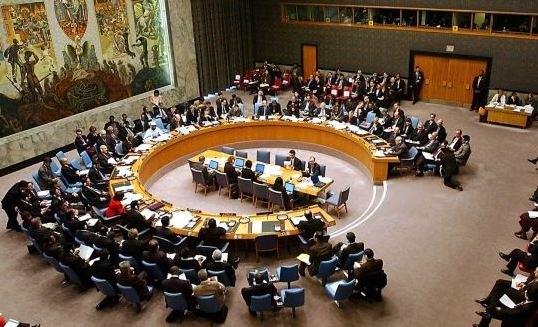
U.N. Security Council imposes an arms embargo on South Sudan

The United Nations Security Council has imposed an arms embargo on South Sudan in efforts to pile pressure on the warring factions to stop the conflict.
The U.S.-drafted resolution won the minimum nine votes required, while Russia, China, Ethiopia, Bolivia, Equatorial Guinea and Kazakhstan abstained, seemingly in fear that the move could jeopardize regional attempts to revitalize the South Sudan peace process.
“South Sudan’s people have endured unimaginable suffering and unspeakable atrocities. Their leaders have failed them,” U.S. Ambassador to the U.N. Nikki Haley told the council before the vote. “We need the violence to stop.”
RT@USUN: After several yrs of hard work a US led S.Sudan arms embargo passed in the Security Council this morning
9 in favor
6 abstentions
0 against“We can finally stand in solidarity with the people of South Sudan & at long last show that we are able to help” #ANewDayAtUN pic.twitter.com/uvgjd8rsUx
— Archive: Ambassador Nikki Haley (@AmbNikkiHaley) July 13, 2018
South Sudan has been plagued by civil war since December 2013, sparked by a feud between President Salva Kiir and his then deputy Riek Machar.
Kiir accused Machar of plotting to overthrow his reign, allegations the latter denied but then went on to mobilize a rebel force to fight the government.
The war has killed tens of thousands and displaced millions others, prompting the U.N. to rank the country as Africa’s biggest refugee crisis.
A peace deal was however signed by the warring factions last week to end the fighting, with follow up negotiations culminating in an agreement to reinstate Machar as first vice president, a position he was sacked from following clashes in Juba in July 2016.
Ahead of the Security Council vote on Friday, Ethiopia’s U.N. Ambassador Tekeda Alemu warned that imposing the arms embargo would undermine the peace process, and that the African Union and East African regional bloc IGAD believe “now is not the appropriate time for taking such measures.”
China’s U.N. Ambassador Ma Zhaoxu said the Security Council should have listened to African leaders on the issue.
The embargo comes following a move by the South Sudanese Parliament to extend President Kiir’s term until 2021, one that has elicited fears it could undermine the peace talks.
Britain’s U.N. Ambassador Karen Pierce said after the council vote: “It’s not a resolution about the peace process. It’s a resolution designed to protect the people of South Sudan … We expect the peace process to continue.”






